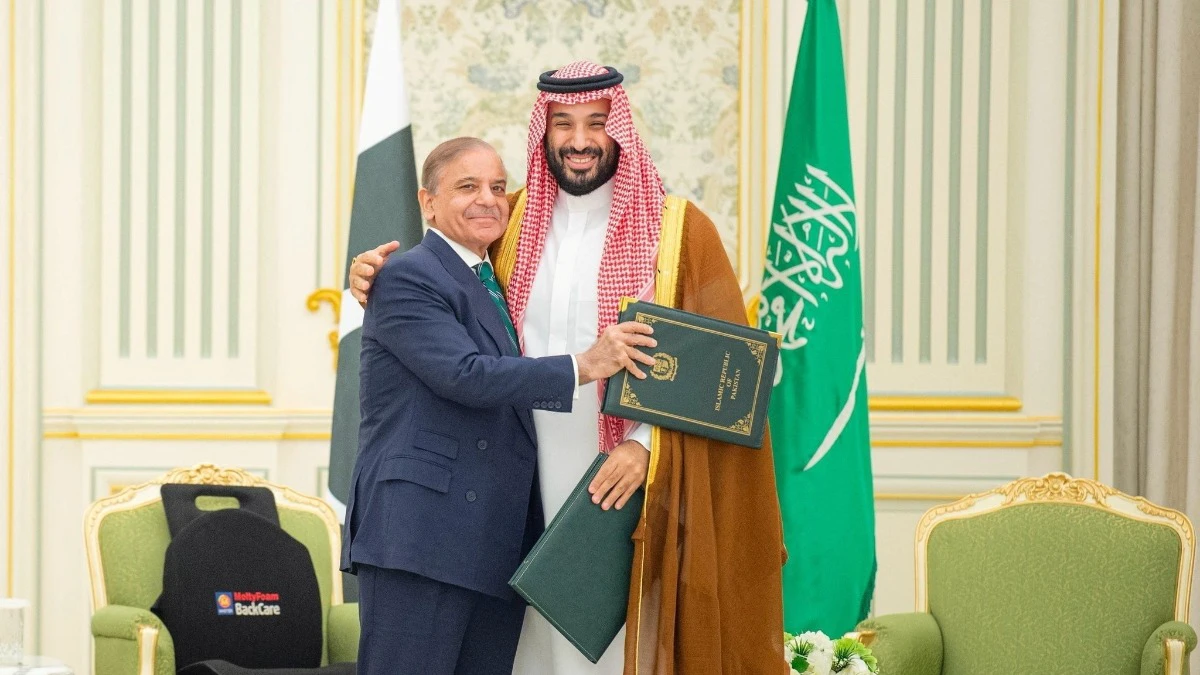The recent Saudi Arabia-Pakistan 2025 defence pact has given Riyadh access to Pakistan’s nuclear deterrent and trained forces, boosting its regional influence.
InCred Equities in a note said this would mean oil price premiums may fall, as Pakistani forces can manage the Houthis and keep Bab al-Mandeb open, while an Israeli attack on Saudi becomes unlikely. For India, the potential Saudi backing of Pakistan raises the stake, requiring the readiness for rapid, high-tech conflict, InCred said adding that it is positive for Indian defence firms.
In terms of defence, the pact would enhance Pakistani capabilities. A potential access to Saudi Arabia’s air assets and financial support could allow Pakistan to rapidly sustain high intensity operations, forcing India to prepare for a technologically advanced and short-notice conflict.
“In an extreme scenario, Pakistan might obtain Saudi defence equipment, especially aircraft. It is unlikely the Pakistanis could integrate air-defence systems on short notice; however, they could, in a desperate situation, acquire best-ofclass Saudi AWACS (E-3) and a fleet of fighters. Although this is a low-probability, high-impact event, Indian military planners should prepare for the contingency,” it said.
InCred Equities forecast acquisition of 114 Rafales by IAF, stage-wise commissioning of air defence assets (Sudarshan Chakra), procuring of fifth-generation aircraft like the Su-57, hypersonic missiles in large quantities, and a large number of 4th-generation aircraft.
It also srees India acquiring extensive unmanned aerial capabilities to target and destroy radar sites, anti-radiation missiles and air-launched ballistic and cruise missiles.
InCred said it may prioritise rapid neutralisation of Pakistan’s aerial infrastructure in the first 24-48 hours of conflict. It may maintain technological superiority in air, missile, and surveillance systems and acquire advanced platforms such as Rafales, Su-57s, hypersonic missiles, anti-radiation missiles, and unmanned aerial systems. Besides, it may go for rapid deployment of air defence shield – Sudarshan Chakra.
Israel once considered a strike on Pakistan’s Kahuta nuclear facility in 1980 with potential Indian cooperation. India ultimately withdrew, illustrating the region’s historical strategic caution and Pakistan’s long-standing deterrent influence.
InCred, meanwhile, said strengthened Saudi deterrence and ground capabilities reduce the risk premium for crude oil prices, as Pakistani troops could help secure the Bab-al-Mandeb Strait against Houthi interference.
Pakistan’s dependence on US aid constrains its independent action. “However, Chinese backing could embolden Pakistan, reduce the reliance on US support, and challenge American hegemony. For Saudi Arabia, China presents an alternative strategic partner if the US proves unreliable. Under the Donald Trump administration, US foreign policy has been highly transactional,” it said.
Saudi Arabia may seek strategic insurance via Pakistan’s nuclear umbrella while exploring Chinese support as a hedge against unpredictable American decisions, InCred said.
